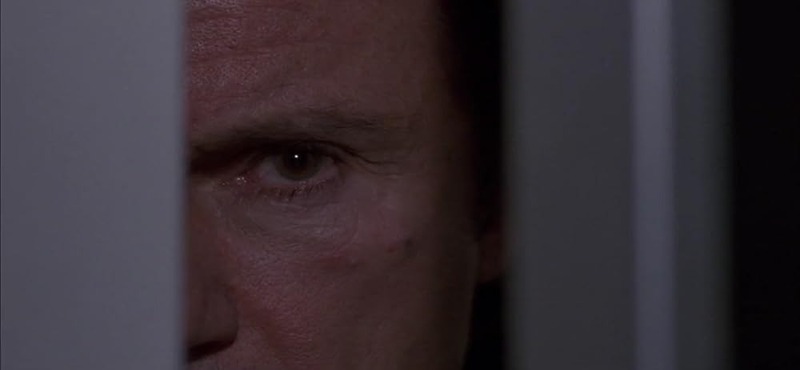
A Cop’s Descent Into Chaos and Corruption
MOVIE REVIEW
Bad Lieutenant
NC-17 –
Genre: Crime, Drama, Thriller
Year Released: 1992, 2024 4K
Runtime: 1h 36m
Director(s): Abel Ferrara
Writer(s): Zoë Lund, Abel Ferrara
Cast: Harvey Keitel, Victor Argo, Paul Calderon, Victoria Bastel, Leonard Thomas, Zoë Lund, Frankie Thorn, Robin Burrows, Paul Hipp
Where To Watch: available on limited edition 4K and Blu-ray here: www.101-films-store.com and available now, order here: www.kinolorber.com or www.amazon.com
RAVING REVIEW: BAD LIEUTENANT hooks the audience immediately and pulls them into a dark, unrelenting exploration of a New York City police officer’s life gone astray. Harvey Keitel delivers a raw and intense performance, embodying a cop who is sinking into a mire of substance abuse and corruption. Under the guidance of director Abel Ferrara, this film delves deep into themes of moral decay and the quest for redemption in a city that never rests. I think the peak of any acting performance is when it can cause a visceral reaction from the audience; I found myself genuinely disgusted while watching the film, and that’s saying something!
The depiction of the lieutenant’s decline is both audacious and heart-wrenching. Keitel’s character is caught in a downward spiral, alternating between violent outbursts and moments of sheer vulnerability. His transgressions—ranging from drug addiction to gambling and abuse of power—are depicted with a gritty realism that highlights the complexity of his psyche. This role underscores Keitel’s versatility, showcasing his ability to convey the profound anguish and desperation of a man on the brink of collapse.
New York City plays a crucial role, its harsh and unforgiving landscape mirroring the protagonist’s internal turmoil. Ferrara captures the city’s darker side with vivid realism, presenting a narrative that reflects widespread moral decay. The lieutenant’s unconventional methods of handling crimes involving drug diversion and unorthodox conflict resolution add to the film’s gritty authenticity.
The plot takes a dramatic turn when there is an assault, and the mafia offers a significant reward for the perpetrators’ capture. This incident becomes a pivotal moment for the lieutenant, presenting a slim chance for redemption. The victim’s astonishing ability to forgive her attackers profoundly impacts him, prompting a quest for his form of atonement. This subplot adds a spiritual depth, portraying the lieutenant as a profoundly flawed figure seeking salvation amidst his chaos.
Ferrara’s direction embraces an almost guerrilla filmmaking style, capturing genuine reactions from unsuspecting passers-by during some of the film’s most intense scenes. This approach lends the movie a quasi-documentary feel, blurring the line between fiction and reality. The film’s notorious depictions of drug use, some even rumored to be authentic, enhance its stark portrayal of addiction and moral decline.
Religious themes run throughout the film, with recurring references to Christ and salvation juxtaposed against the lieutenant’s depraved actions. Crucifixion imagery and symbolic gestures amplify the exploration of guilt, redemption, and grace. In his most vulnerable moments, Keitel’s character embodies a man desperately seeking redemption through unorthodox means, adding a layer of complexity to the narrative.
BAD LIEUTENANT is not designed to comfort its audience. It is a profoundly unsettling film that forces viewers to confront the darkest aspects of human nature. The absence of a traditional plot structure, focusing instead on the lieutenant’s moral decay, creates a jarring yet impactful experience. This narrative choice emphasizes the profound psychological exploration at the film’s core.
The lieutenant’s journey is marked by increasingly desperate acts, from manipulating crime scenes to committing public humiliation. Ferrara’s unflinching portrayal of these actions paints a grim picture of human depravity, making the film both disturbing and captivating. Despite its relentless bleakness, moments of unexpected grace punctuate the narrative.
Ferrara’s film is a testament to the power of raw storytelling, stripping away the glamor often associated with crime dramas. It presents a world where moral boundaries are blurred, focusing intensely on the protagonist’s inner turmoil and external chaos. This relentless focus creates a compelling portrait of a man teetering on the brink of self-destruction.
BAD LIEUTENANT is a profound exploration of sin, redemption, and human frailty. It challenges viewers to grapple with complex moral questions, offering no easy answers. The film’s stark realism and unflinching depiction of its protagonist’s decline make it a challenging but ultimately rewarding viewing experience. The film defies conventional storytelling, opting for a raw and visceral examination of one man’s descent into darkness. It leaves a lasting impact, compelling viewers to confront uncomfortable truths about humanity and the potential for redemption in the most unlikely places.
Please visit https://linktr.ee/overlyhonestr for more reviews.
You can follow me on Letterboxd, Instagram, Twitter, and YouTube. My social media accounts can also be found on most platforms by searching Overly Honest Reviews.
I’m always happy to hear from my readers; please say hi or send me any questions about movies.
[photo courtesy of 101 FILMS, KINO LORBER]
DISCLAIMER:
At Overly Honest Movie Reviews, we value honesty and transparency. Occasionally, we receive free items for review, including DVDs, Blu-rays, CDs, Vinyl, Books, etc. We assure you that these arrangements do not influence our reviews, as we are committed to providing unbiased and sincere evaluations. We aim to help you make informed entertainment choices, regardless of our relationship with distributors or producers.
Amazon Affiliate Links:
Additionally, this site contains Amazon affiliate links. If you purchase through these links, we may receive a commission. This affiliate arrangement does not affect our commitment to honest reviews and helps support our site. We appreciate your trust and support in navigating these links.



Average Rating